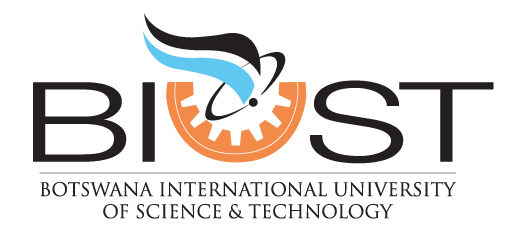
Palapye, August 9, 2024 – The Botswana International University of Science and Technology (BIUST) renewed its longstanding Memorandum of Understanding (MoU) with the National Astronomical Research Institute of Thailand (NARIT) in a ceremony held at the BIUST Auditorium. This renewal symbolizes the ongoing commitment of both institutions to advance astronomical research and education in Botswana.
As the custodian of astronomy development in Botswana, a role appointed by the Ministry of Communications, Science and Technology in 2016, BIUST is honored to host this significant event. NARIT, a leading institute in astronomy and astrophysics development in Thailand, has been pivotal in fostering research, public outreach, and educational activities in partnership with BIUST.
During the ceremony, BIUST Vice Chancellor, Professor Otlogetswe Totolo, reflected on the institution’s transformative journey since its establishment in 2006. “BIUST has been at the forefront of leading Botswana’s transition from a mineral-led to a knowledge-driven economy through cutting-edge research in science, engineering, and technology. As part of this mandate, BIUST was appointed the custodian of Astronomy projects in Botswana, necessitating strategic partnerships with expert institutions like NARIT,” Professor Totolo noted.
The original MoU between BIUST and NARIT was signed on August 8, 2018, with the aim of seeking guidance and support in the development of astronomy in Botswana through student and staff exchanges. As Professor Totolo emphasized, “The renewal of this MoU signifies our continued commitment to this fruitful partnership. In addition to the renewal ceremony, NARIT will join our Astronomy team for the National Science Month campaign, conducting workshops with our students and staff, donating telescopes for outreach, and participating in Science Month activities leading to National Science Week (NSW) at the end of the month.”
The Deputy Director of Technology and Commercialisation, Mr. Oabona Monnakgotla, delivered the opening remarks, highlighting Botswana’s journey in astronomy. “Our journey began in earnest in 2011 with a declaration by the then Minister of Infrastructure, Science, and Technology, Johnie Swartz, ensuring Botswana’s participation in the Square Kilometre Array (SKA). This decision set off a chain of events, leading Botswana to join the global race in astronomy development,” Mr. Monnakgotla said. He praised the strides made by BIUST in achieving the nation’s vision, citing recent partnerships to bring Botswana’s first research-grade radio telescope into the country.
Monnakgotla also spoke on the potential of astronomy to influence Botswana’s economy, particularly through the development of Astro-tourism. “By promoting astronomy and leveraging our unique geographic advantages, we can attract tourists, researchers, and enthusiasts from around the world, stimulating economic growth and creating new opportunities for our people,” he stated. He further emphasized the importance of inspiring younger generations in science and discovery by integrating indigenous astronomy with modern research.
NARIT’s Executive Director, Dr. Saran Poshyachinda, shared insights into the global relevance of astronomy and its everyday applications. “Astronomy is an important tool to inspire the younger generation and has played a crucial role in technological advancement, being at the forefront of science. Innovations such as cameras in your phones and medical instruments have their origins in astronomy,” Dr. Poshyachinda explained. He expressed his gratitude towards BIUST for their partnership and hospitality.
The event concluded with remarks from BIUST’s Deputy Vice Chancellor of Research and Innovation, Professor Abraham Ogwu, who reaffirmed the importance of this partnership for the future of astronomy in Botswana.
As part of this renewed collaboration, NARIT participated in a public lecture hosted by the University of Botswana, in collaboration with BIUST and FAST-4 Future, on August 11, 2024, where NARIT donated telescopes to BIUST, further strengthening the ties between the institutions and enhancing the capacity for astronomical research in Botswana.
